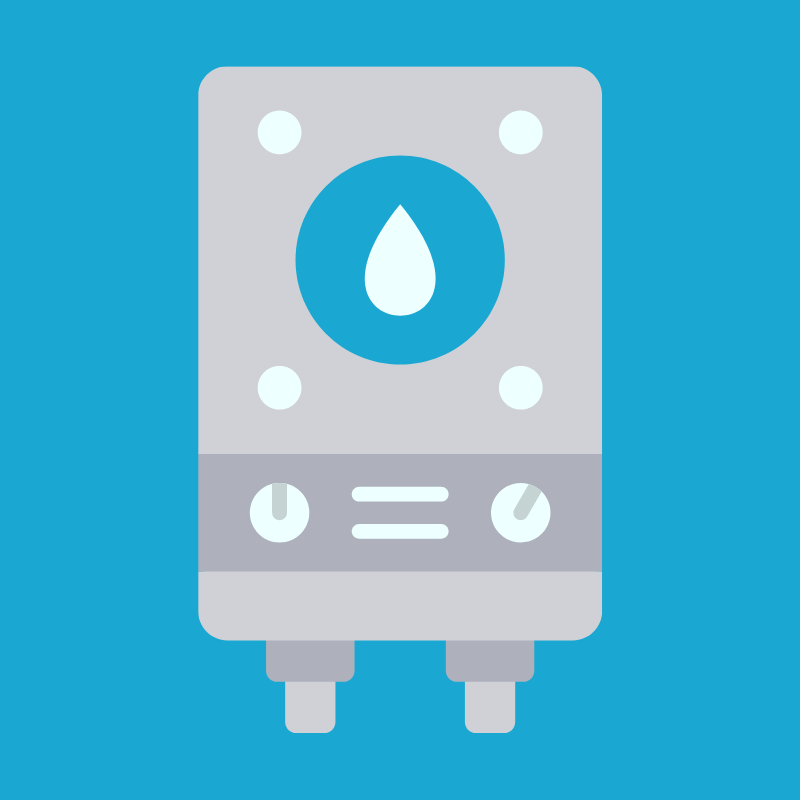In the evolving landscape of modern plumbing, the adoption of tankless water heaters has emerged as a worthwhile advancement. They offer a variety of benefits over traditional tank-style models. As a forward-thinking plumbing company, we push for this transition due to its significant advantages in efficiency, convenience, and sustainability.
In this article, we will delve into the intricacies of tankless water heaters to inform homeowners of their advantages, helping them make decisions that will undoubtedly enhance their comfort and take advantage of an energy-efficient product.
First, we will explore what a tankless water heater is and how it fundamentally differs from the conventional tank-style water heater. This foundational knowledge is essential for appreciating the subsequent benefits and considerations.
Following this, we will detail the various advantages of tankless water heaters, ranging from energy savings to the enjoyment of continuous hot water.
Additionally, we will address the critical importance of correctly sizing a tankless unit to ensure optimal performance. A heater improperly sized will have to work harder and risks the chance of a premature replacement.
Finally, we will examine potential challenges associated with tankless heaters, emphasizing the need for thoughtful planning rather than reactive installation, particularly concerning infrastructural modifications that might be needed.
What Is A Tankless Water Heater?
A tankless water heater, also known as an on-demand or instantaneous water heater, operates by heating water directly as it flows through the unit without the need for a storage tank. Unlike traditional tank-style heaters, which maintain a constant reservoir of heated water, tankless systems activate only when hot water is needed. This design provides several benefits.
The Advantages of a Tankless Water Heater
Reduced Energy Consumption
The primary advantage of a tankless water heater is its energy efficiency. By heating water only when required, these units significantly reduce energy waste, leading to lower utility bills. Tank-style heaters must continuously heat and reheat the water stored in the tank, so it is hot whenever a tap is opened or an appliance is turned on. Eliminating the standby heat loss inherent in tank-style heaters minimizes energy consumption.
Smaller Environmental Footprint
Because tankless heaters last twice as long as tank-style heaters, they have less impact on landfills, where failed water heaters end up.
Additionally, many utility companies and government agencies offer rebates and incentives to homeowners in the hopes they will purchase these energy-efficient systems that reduce water waste found in traditional heaters.
Endless Hot water
Tankless water heaters provide an endless supply of hot water, as they are not limited by the capacity of a storage tank. This is particularly advantageous for households with large families with high hot water demands, ensuring that hot water is always available, even during peak usage times.
Long Life Span
Tankless water heaters also boast a longer lifespan compared to traditional tank models. With proper maintenance, a tankless unit can last up to 20 years or more, whereas tank-style heaters typically last around 10-15 years.
Space Saving
Since tankless heaters can be installed in small spaces, even hung from a wall, they do not take up as much space as a traditional water heater, which always utilizes a large storage tank. This frees up additional living space or more room to store one’s belongings. This makes tankless water heaters a popular choice for those in smaller homes or apartments.
The Importance of Correct Sizing
Proper sizing of a tankless water heater is crucial to ensure it meets the household’s hot water demands effectively. Undersized units may struggle to provide sufficient hot water during peak usage, while oversized units may result in unnecessary energy consumption and higher upfront costs.
Accurate sizing requires a thorough assessment of the household’s hot water usage patterns, including the flow rate and temperature rise required. Consulting with a professional plumber during this process ensures that the chosen unit aligns with the specific needs of the home.
Potential Challenges
While tankless water heaters offer numerous benefits, there are potential challenges that must be considered.
Do You Have A Gas Line?
One significant factor is the need for a gas line for gas-powered units. Even if a gas line is already installed, tankless units often require a higher gas flow rate than traditional tank heaters, necessitating upgrades to the home’s gas lines. This can add complexity and cost to the installation process.
Electrical Concerns
If you are transitioning to an electric model, electrical upgrades may be needed to support the new heater’s heating capacity. This adds time and cost to the installation process and must be considered when deciding if the transition to a tankless heater makes sense.
Venting Requirements
Tankless heaters require special venting to avoid potential issues such as frequent breakdowns, a reduced lifespan, and, more seriously, carbon monoxide poisoning. Electric models do not require venting, but gas models can be vented using either a power vent, a direct vent system, or a concentric vent, all of which add to the complexity of installation.
Proactive Planning Is Needed
Planning the installation of a tankless water heater proactively rather than as an emergency replacement allows for these infrastructural modifications to be addressed without the pressure of immediate need. This ensures a seamless transition and optimal unit performance from the outset.
Looking For A Professional Plumber To Install A Tankless Water Heater?
Transitioning to a tankless water heater presents a compelling case for homeowners seeking to enhance energy efficiency, convenience, and sustainability. By understanding the fundamental differences between tankless and tank-style heaters, recognizing the myriad advantages, and appreciating the importance of correct sizing and preemptive planning, one can make an informed decision that maximizes the benefits of this modern technology.
Embracing tankless water heaters not only contributes to long-term savings and environmental conservation but also ensures a continuous and reliable supply of hot water. All of these accolades allow homeowners to appreciate the popularity of these advanced water heaters.
Call us to discuss your particular situation and we will apply our knowledge and expertise to aid you in transitioning to a modern, technologically advanced tankless water heater today!er today!

